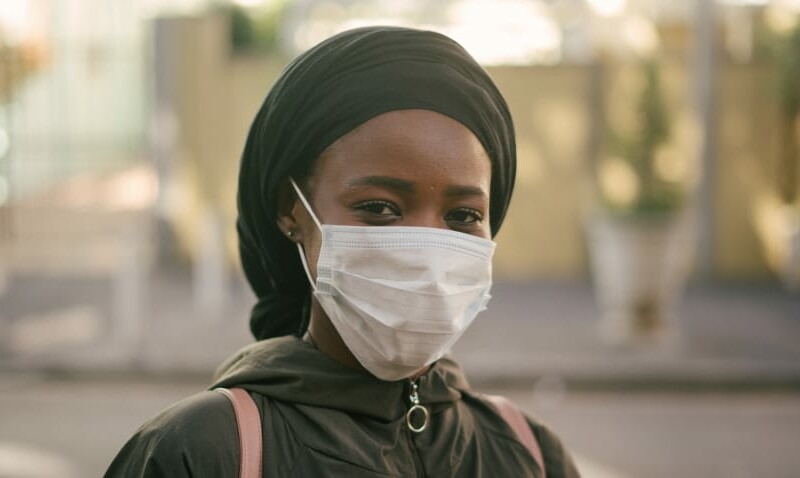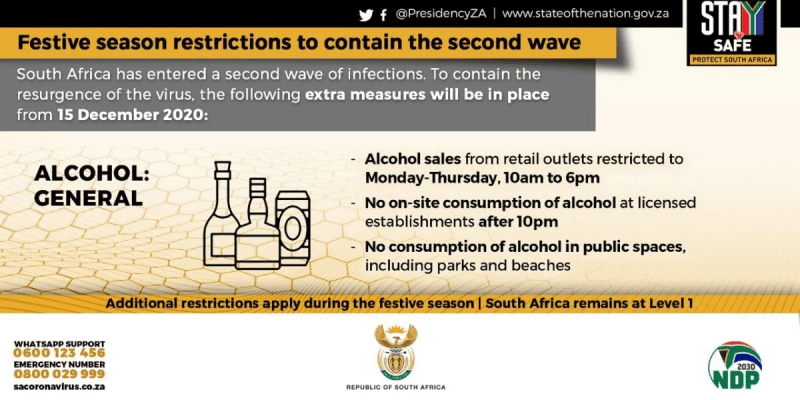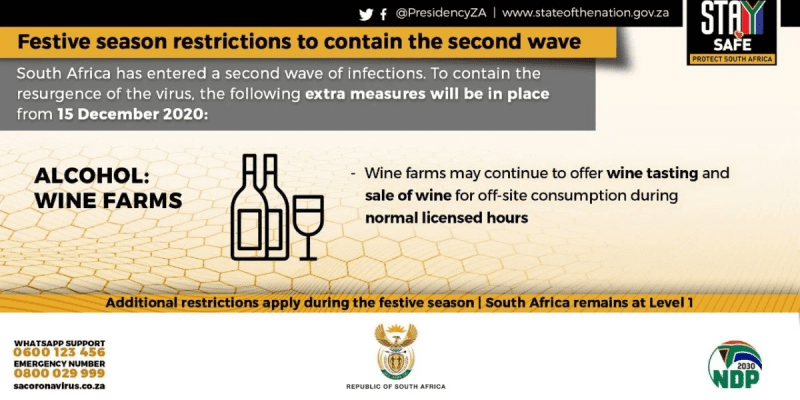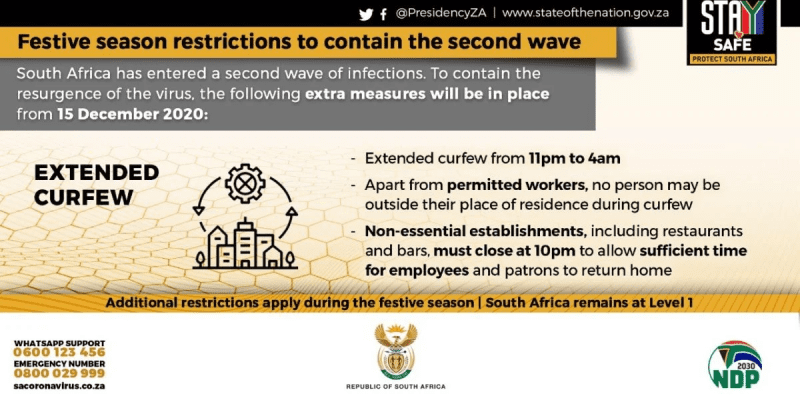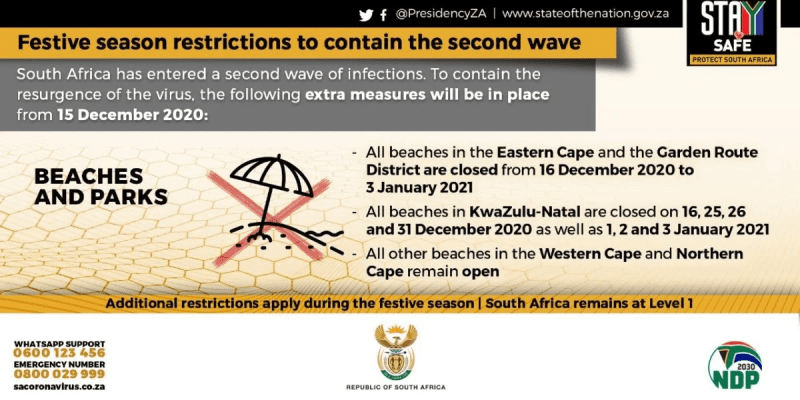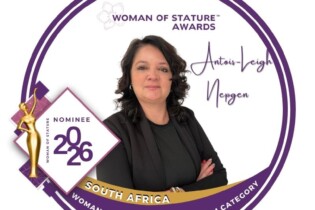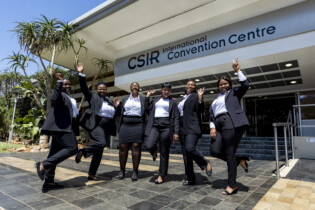In an address to the nation last night, President Cyril Ramaphosa announced new Lockdown Level 1 regulations as South Africa heads into its second wave of the Covid-19 pandemic.
“We have to recognise that the more we travel, the greater the potential to spread the virus… Many people do not observe prevention measures as they move within cities, towns and rural areas, and between different areas,” said the President in his address.
This follows the National Institute for Communicable Diseases’ (NICD) confirmation on 09 December that South Africa is entering its second wave of infections as has unfolded overseas.
Prior to the second wave, South Africa had recorded less than 1 000 daily infections. However, a number of hotspots in areas across the Western and Eastern Cape as well as KwaZulu-Natal and Gauteng saw the number of daily cases skyrocket, and the country hit 7 999 new infections on 13 December (sacoronavirus.co.za).
The changes that will most affect the events and hospitality sector include the following:
- The maximum size of gatherings will be reduced to 100 people for indoor events and 250 people for outdoor events. All venues need to also ensure that they do not exceed 50% of their capacity, within this maximum limit.
- Stricter enforcement of mask-wearing is required. Those managers at establishments that fail to enforce this will be liable for a fine or to imprisonment of up to six months.
- Social distancing must be enforced, and hand sanitisers must be readily available for all patrons. Venues should also try to ensure they are well ventilated.
- Festivals, live music, and live performances at beaches are prohibited.
The crackdown on events in particular follows super spreader Matric Rage events, which the President noted are reported to have infected 1 000 school leavers and up to 300 families.
Other changes include an increased curfew time of 23:00 to 04:00, with non-essential establishments like restaurants and bars therefore needing to close at 22:00. Additionally, alcohol can only be sold from retail outlets between 10:00 and 18:00 from Monday to Thursday. This excludes registered wineries and wine estates which are open for tastings and sales.
Two new infection ‘hotspots’ were also identified. These are the Sarah Baartman District and Garden Route District. They will therefore need to now comply with the same restrictions which were applied to Nelson Mandela Bay on 04 December 2020.
The crackdown on events in particular follows super spreader Matric Rage events, which the President noted are reported to have infected 1 000 school leavers and up to 300 families.
Meanwhile there have also been reports of some hospitality establishments flouting the established health and safety protocols – which Rosemary Anderson, chairperson FEDHASA (Federated Hospitality Association of South Africa), recently spoke out against, saying, “The Tourism and Hospitality sector has worked incredibly hard to devise and institute robust health and hygiene protocols to safeguard our staff and guests. The blatant disregard for these, as evidenced in the social media video [taken at a Cape Town restaurant], not only puts patrons and anyone with whom they’re likely to be in contact at risk, it also jeopardises the reputation and continued operations of the entire industry which, by and large, is committed to complying properly.”
“It’s in our hands.”
Peter Dros, Sales and Marketing Director at Fancourt, believes the new amendments are fair and important. He says, “Fancourt is complying fully with health and safety protocols and ensuring that our staff, members and guests are doing the same. Within the last week we took the decision to postpone some planned events; we have limited restaurant numbers and are practising social distancing at all times. We understand that the heightened restrictions have been put in place to keep people safe – and we appreciate that government has kept the tourism industry and tourism jobs in mind when making these decisions.”
Otto de Vries, CEO of Association of Southern African Travel Agents (ASATA), adds, “It’s up to us to ensure we don’t go back to where we were before and that means proper implementation of the comprehensive protocols that have been devised specifically for our sector and managing the compliance of our customers, guests and travellers. It really is that simple. It’s in our hands.”
You can find these new regulations in the Government Gazette published today here.


